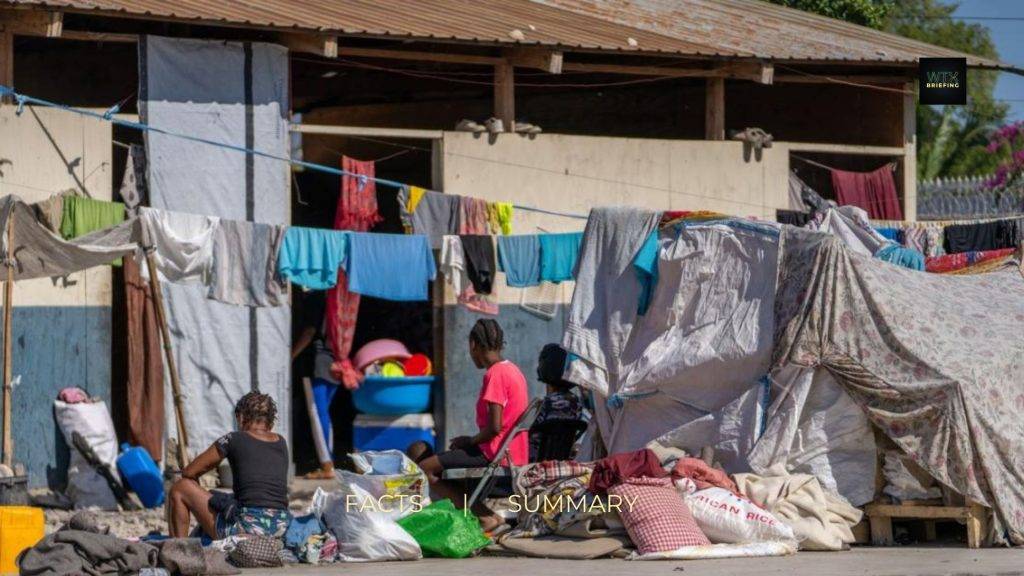- One million people internally displaced in Haiti amid escalating gang violence
- In the capital, Port-au-Prince, displacement rose 87% between 2023 and 2024
- Health services collapse, food insecurity and families living in makeshift tents
Haiti’s number of internally displaced triples amid escalating violence
The number of internally displaced people in Haiti has surged to over one million, a threefold increase attributed to escalating gang violence, according to the United Nations‘ International Organization for Migration (IOM). The crisis is most severe in the capital, Port-au-Prince, where displacement rose by 87% between 2023 and 2024.
The IOM estimates that gangs now control approximately 85% of Port-au-Prince, causing widespread disruption. Health services in the city have collapsed, food insecurity has deepened, and many displaced families are living in makeshift shelters, facing severe health and safety risks. Half of those displaced are children, further highlighting the human toll of the ongoing crisis.
The violence has claimed over 5,600 lives in the past year alone. Amy Pope, the IOM’s Director-General, emphasised the need for sustained humanitarian assistance to protect lives and address the escalating crisis.
The turmoil stems from a wave of gang violence that began after the assassination of Haiti’s president, Jovenel Moïse, in 2021. Despite the arrival of a UN-backed multinational security force in June 2024, progress in reclaiming gang-controlled areas has been minimal. The force, intended to support Haiti’s National Police, remains underfunded and poorly equipped compared to the heavily armed gangs.
Adding to the instability, Haiti’s Transitional Presidential Council (TPC), tasked with organising elections and restoring democratic governance, has been mired in internal conflicts. After replacing the interim prime minister in November, the council has made little headway in organising long-overdue elections.


